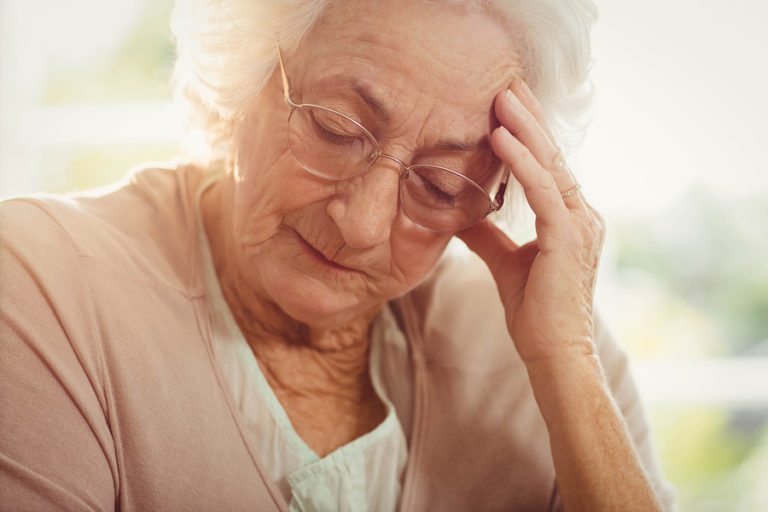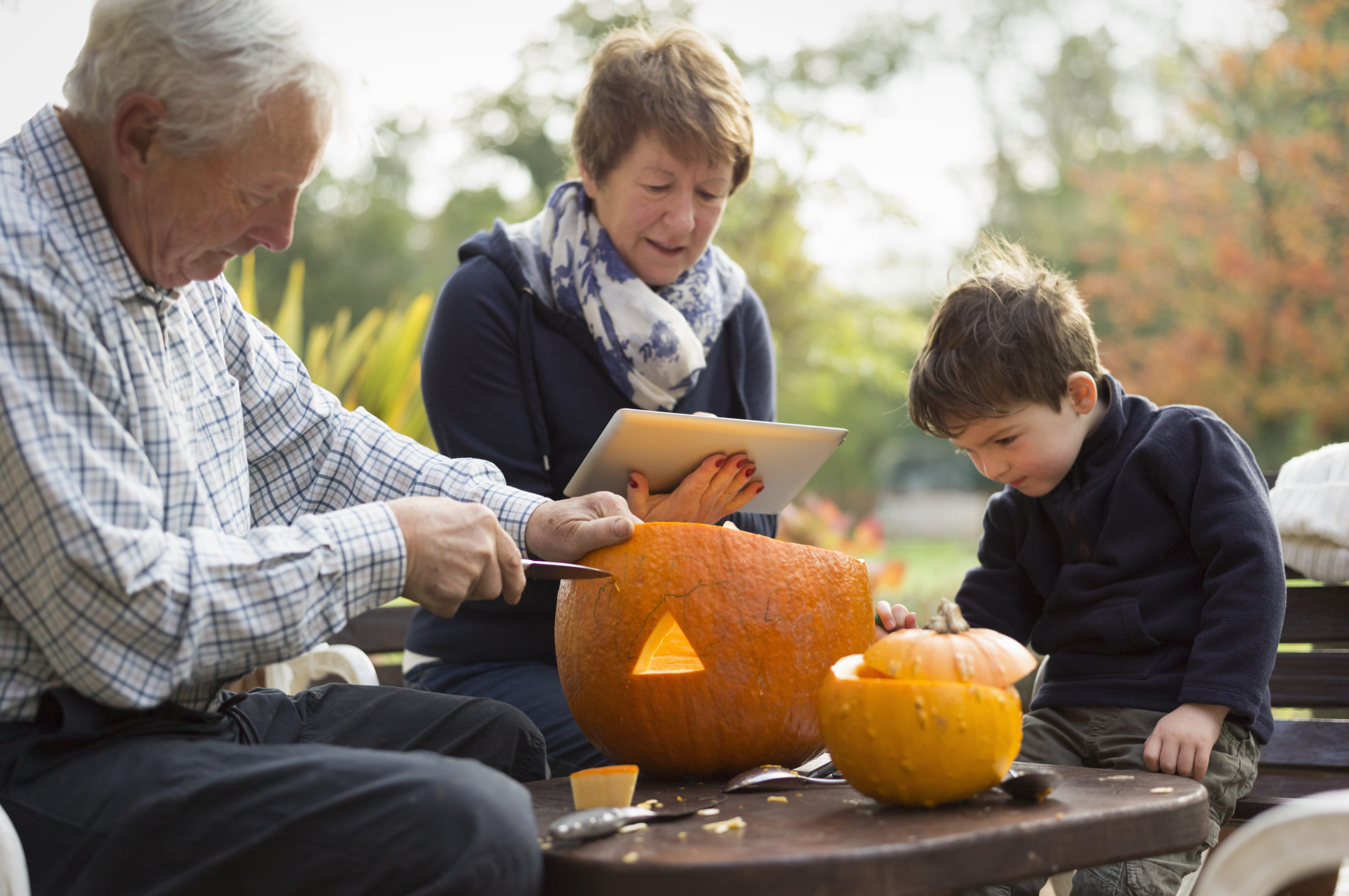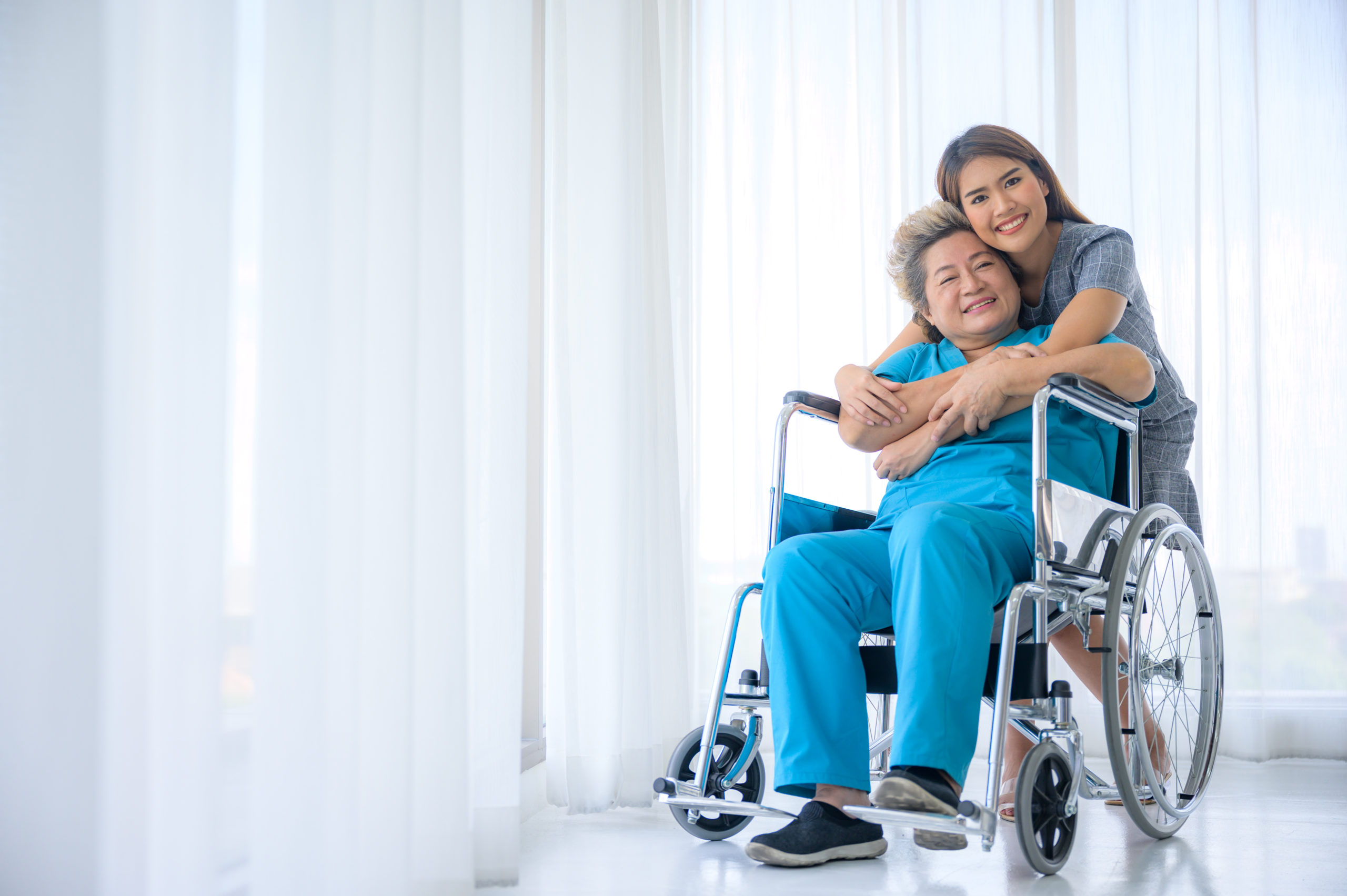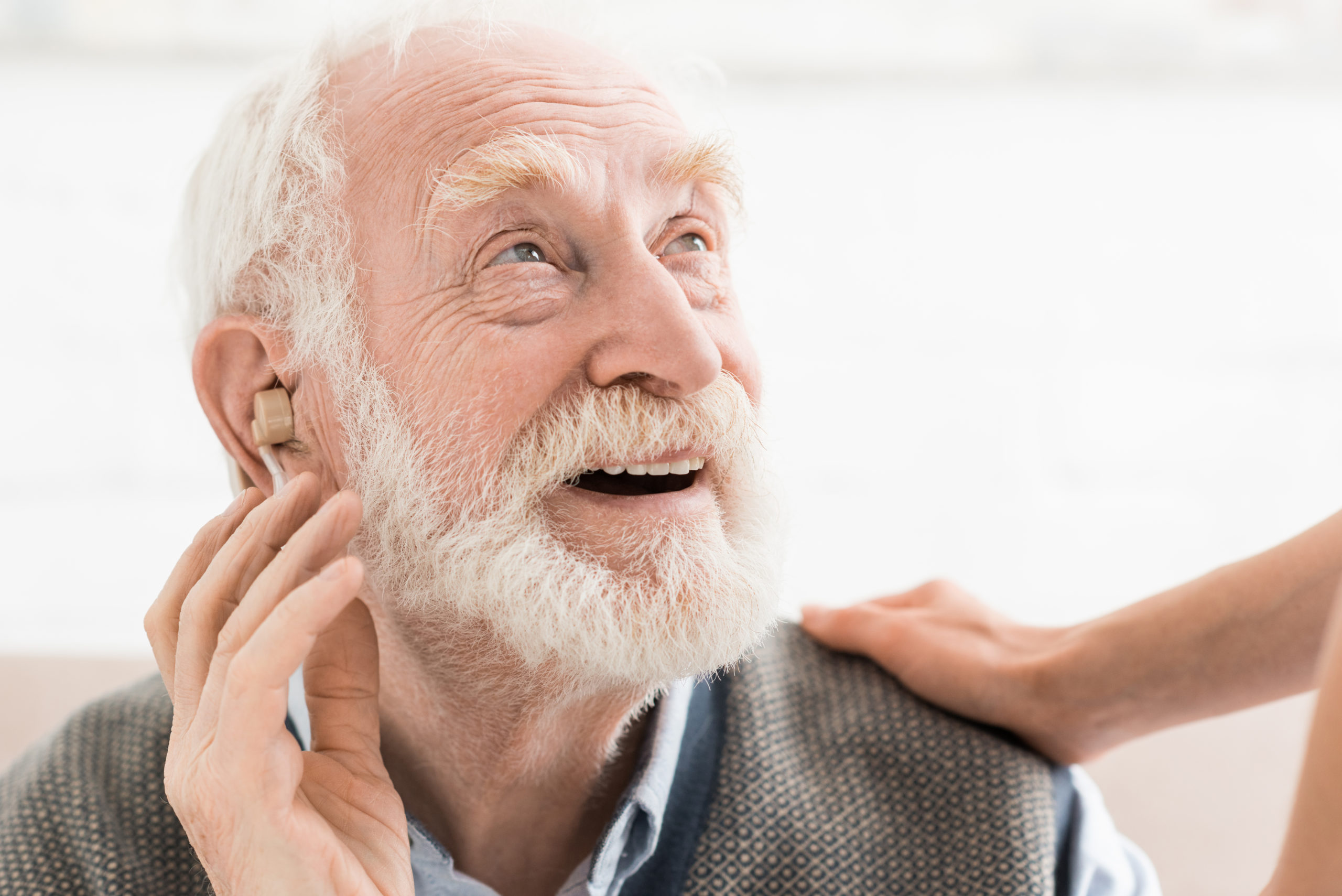A migraine is a kind of severe headache that typically occurs on only one side of the head. People who suffer from migraines sometimes describe them as a pulsing or throbbing pain. Many people with migraines also experience sensitivity to light, nausea, and vomiting. For some, the pain is so bad that it can be disabling until the migraine goes away. Migraines can be triggered by many different things, including certain foods, alcohol, caffeine, bright lights, and some medications. If your aging relative suffers from migraines, these tips may help them to cope with the pain.
#1: Use Medications
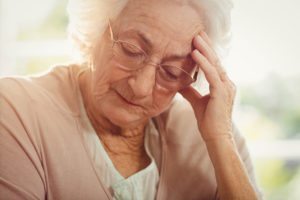
If the doctor has prescribed drugs or suggested over the counter medications, it’s important that the older adult use them according to the directions. Missing a dose of preventative drugs could result in having a migraine.
If your aging relative sometimes misses medication doses, a senior care provider can remind them when it is time for a dose.
#2: Go Somewhere Quiet
When the older adult feels a migraine coming on, going to a room that is quiet and has dim lighting can help. Use a hot or cold pack on the neck or temples to ease the pain. It can also help to drink something with a little caffeine in it. Caffeine sometimes relieves some of the pain if it is consumed when the migraine first starts. It can also make acetaminophen work even better.
A senior care provider can assist the older adult to move to a quiet room. They can also prepare a hot or cold pack and bring a caffeinated beverage.
#3: Pay Attention to Diet
Your elderly family member’s diet can play a role in migraine episodes. Experts at the Mayo Clinic suggest eating at the same times each day and not skipping meals. They also suggest keeping track of what the older adult eats since some foods can trigger migraines. Writing down what the senior eats each day may help to identify trigger foods. Once a trigger food is identified, it should be avoided.
Senior care providers can assist with tracking foods and migraine symptoms. They can also prepare balanced meal to support the senior’s health that also avoid trigger foods.
#4: Get Enough Sleep
Not sleeping well can bring on a migraine. They can also wake your loved one up or make it hard for them to fall asleep. Establishing good sleep habits can help them to fell more rested. Some tips for good sleep are:
• Get up in the morning and go to bed at night around the same times each day.
• Set a relaxing mood at the end of the day. Switch to quiet activities, like listening to music or reading a book.
• Make the bedroom a place for sleeping and relaxing only. Remove clutter and distractions to create a soothing atmosphere.
Senior care can help your aging relative to develop and maintain good sleep habits. A senior care provider can assist them with getting ready for bed each night at the same time. They can also keep the bedroom clean and neat, close the blinds at bedtime, and make sure the temperature is set to one that is comfortable for the senior.
If you or an aging loved one are considering hiring professional Senior Care in Fort Mill, NC, please call the caring staff at BlueDot Cares today, (704) 586-9248.
Sources
https://www.mayoclinic.org/diseases-conditions/migraine-headache/in-depth/migraines/art-20047242
https://www.medicalnewstoday.com/articles/319147.php
https://www.mayoclinic.org/diseases-conditions/migraine-headache/symptoms-causes/syc-20360201

